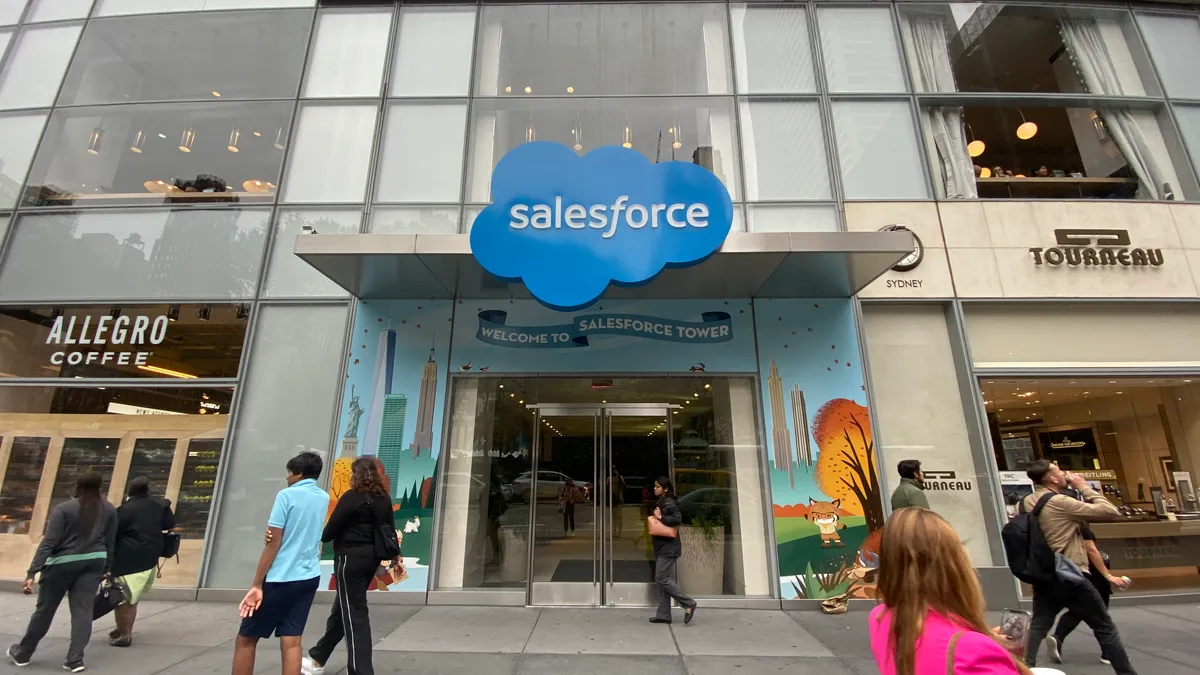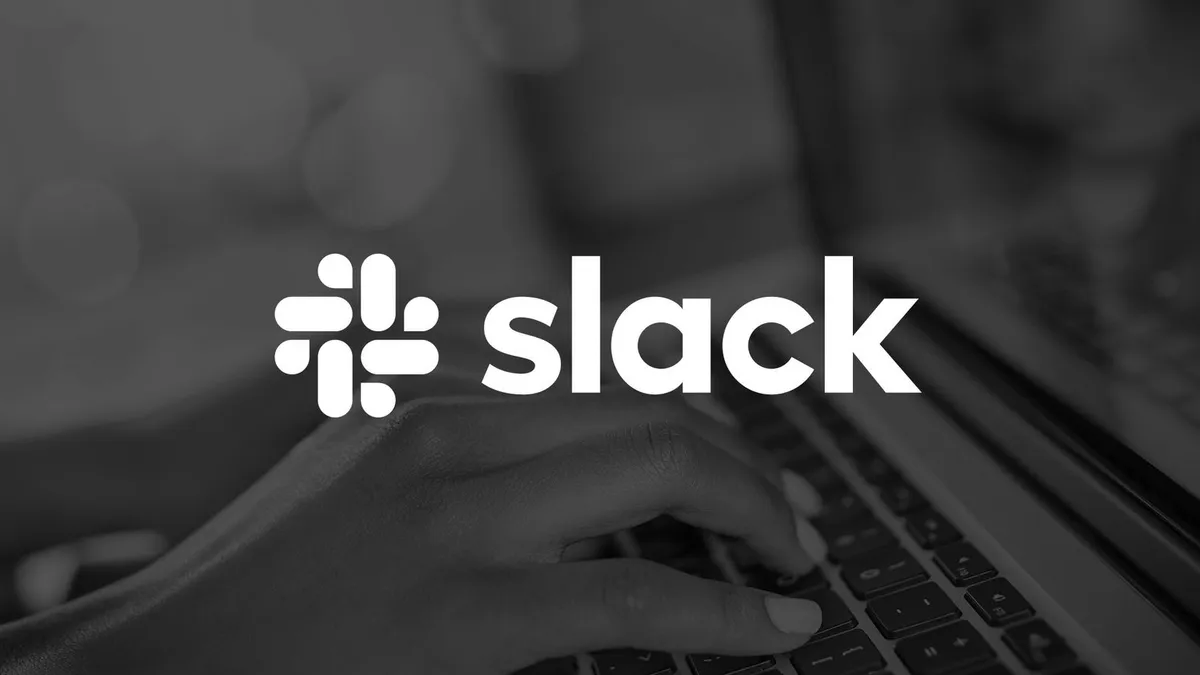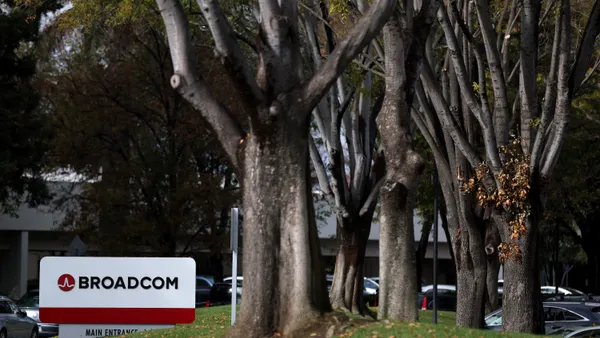Editor's note: Salesforce closed its $27.7 billion stock-and-cash acquisition of Slack on July 21, 2021, according to a company announcement.
Salesforce first announced its intent to acquire the collaboration platform in December 2020. On February 16, the Department of Justice sent both companies a request for further information on the deal, a move one analyst said was a peek at antitrust concerns from regulators.
In an SEC filing, Slack confirmed the DOJ closed its investigation on July 16, and said it expected the acquisition to be completed on or about July 21, pending the customary closing conditions.
The following article is from CIO Dive's archives. It was originally published in December 2020.
Customer relationship management software (CRM) titan Salesforce announced Tuesday it will acquire collaboration platform Slack in a stock and cash deal valued at $27.7 billion.
The acquisition is set to bring about wide-ranging implications for enterprise software. Aligning Slack, a collaboration brand with a passionate user base, alongside Salesforce's digital toolkit for business, ties together two disparate parts of the business and gives Salesforce cross-enterprise exposure in the process.
"As software plays a more and more critical role in the performance of every organization, we share a vision of reduced complexity, increased power and flexibility, and ultimately a greater degree of alignment and organizational agility," said Stewart Butterfield, CEO and co-founder at Slack, in the announcement.
The deal signals a closer tie between collaboration and CRM functions, which is in tune with the trends that shape the future of work, according to Kate Leggett, VP and principal analyst at Forrester.
"Being more focused on outcomes, instead of the activities of work is really here to stay," said Leggett. As automation and AI takes off more of the repetitive tasks off employees' workloads, the harder tasks will be left to humans, who can blend the capabilities of platforms like Slack and Salesforce to boost efficiency.
Salesforce integration capabilities have long been the go-to case study in a once-crowded collaboration field, said Art Schoeller, VP and principal analyst at Forrester. Customers will want to see what value lies in Slack and Salesforce being under the same umbrella, and that value will need to surpass existing integration capabilities.
A key use case stemming from the deal will be the ability for different parts of the organizations to have discussions surrounded by Salesforce data, offering employees insight into the tasks at hand.
"There is a collaborative use case here, to better coordinate efforts," Schoeller said. "But this is an integration that's already kind of there. Being able to refine that, and making that more standardized would certainly be a benefit of Slack being pulled together with Salesforce."
One area where the two companies could work to smooth out the existing integration process is to democratize access to customer data, automatically generating customer-specific Slack channels to let teams collaborate.
"This is harder today, because if you keep this info in Salesforce, it's not accessible to product development teams for example, as they often don't have Salesforce logins," said Rick Nucci, co-founder and CEO of Guru, in an email. "If you keep it solely in Slack, it's hard to know what's going on in the account record in Salesforce."
Exposing CRM data into Slack's collaboration workspace can let employees better contextualize their work.
"Realizing, for example, that you're working on one of the company's most strategic customers allows these employees to be able to organize and better support the customer," Leggett said.
Though Slack has made inroads in external communication capabilities through Slack Connect, which CEO Steward Butterfield touted as a replacement for email, there's potential in the acquisition for expanding customer or partner communications.
"In the world of collaboration, the boundary of the firewall has to be broken," said Schoeller. Organizations seek ways to connect quickly, securely with their stakeholders, in an environment that equips workers to make informed decisions.
"Salesforce is your 'address book' and Slack your 'communication channel,'" Nucci said. "This could be a much better way to connect with customers and now Salesforce can own that communication end-to-end."
















